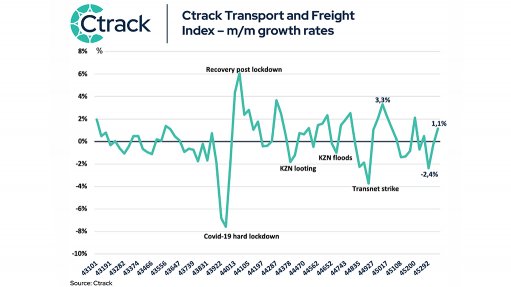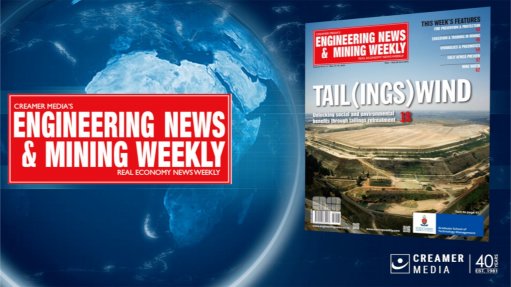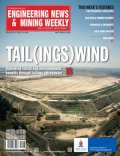Decade of technology-driven growth anticipated
The world is entering a new era of what is dubbed the “roaring 20s”, a decade of growth similar to the exponential growth experienced in the early 1920s following catalytic events that changed the world.
Technology optimists are expecting a decade of significant improvements in the way business is done and the way people work, live and play, driven by technology and innovation, says World Wide Worx founder and information and communication technology (ICT) analyst Arthur Goldstuck.
Speaking during a virtual event hosted by ICT giant Huawei, he noted that the world is emerging from the Covid-19 pandemic into what people expect to be the “new roaring 20s”, which was what defined the “roaring 20s” in 1920, where a massive rise in physical and social mobility was experienced.
The catalyst in the 1920s was the end of the Spanish flu pandemic and the end of the First World War, after which exceptional economic growth and a cultural rebirth were experienced in the US, where gross domestic product grew 42% from 1920 to 1929.
With parallels seen in the current economy, there is mass expectation that a similar shift will be experienced in the 2020s, amid the dawn of technological optimism – a new era of progress defined by the big five of new technology, namely artificial intelligence (AI) and machine learning, robotic process automation, cloud-based business modelling, fifth-generation (5G) technology and blockchain.
The impact of these technologies is already being seen in several industries and will transform the way businesses operate and the way society interacts with business.
“The digital storm is upon us,” Goldstuck says, citing the demise of physical music CDs as one of the most powerful examples of how rapidly industries can be disrupted.
“The Fourth Industrial Revolution is accelerating our pace towards an intelligent world. The impact is translated into the digitalisation of industries across the board,” adds Huawei Africa cloud business VP Michael Langeveld.
He notes how, amid the Covid-19 pandemic, retail became a massive opportunity in the context of digitalisation. Transport, manufacturing and education, besides others, will follow suit.
“We can feel the impact of this change happening,” says Langeveld.
However, the biggest, most impactful changes will be those that, almost invisibly, make tasks simpler, and not from the technologies that look “most dramatic”, such as three-dimensional printing, says Goldstuck.
“Technologies that will completely transform industries are those that will replace the physical with the digital and automate tasks through AI,” Goldstuck says, highlighting how bookkeeping software has almost completely eradicated the need for bookkeepers.
Physical banks, petrol stations and parking garages are the most likely next targets of digital disruption.
Further, the autonomous market is expected to grow nearly 40% year-on-year until the middle of the decade.
“Today, cars park themselves. In the future, they will drive themselves, even across Africa,” he says, highlighting a future where AI enables self-parking cars, parking assist, automatic driving and lane assist, besides others.
AI in vehicles is not only about the vehicles – it transforms the way traffic is managed, how roads are constructed and, ultimately, how cities are designed.
However, sufficient levels of AI, high enough levels of connectivity and a way to securely store the vast amounts of data generated are critical.
The same is true for industries across the board.
“Without connectivity, these efforts will be hampered,” says Langeveld.
Meanwhile, Goldstuck says that, for South Africa to grow its economy while ensuring the best possible quality of life for its citizens, the country needs to combine the implementation of skills related to these technologies with the natural human skills of its people.
While South African businesses are aware of the need to adopt technologies such as AI, there is often a shortfall when it comes to actually implementing them and a skills shortage that is holding back the evolution of AI in the country.
However, there are many promising initiatives under way for training in AI, including Huawei’s university partnerships aimed at decreasing that shortage.
According to Goldstuck, the technological changes driven by AI, 5G and the cloud will come with job losses, particularly among wired telecommunication companies, newspapers, travel agents and other industries that have traditionally required large amounts of human labour.
“But that does not mean that new jobs will not be created. In particular, there will be a massive surge in demand for individual and family care services, home and healthcare services, outpatient care services and management, technical and consulting services,” Goldstuck comments.
Comments
Press Office
Announcements
What's On
Subscribe to improve your user experience...
Option 1 (equivalent of R125 a month):
Receive a weekly copy of Creamer Media's Engineering News & Mining Weekly magazine
(print copy for those in South Africa and e-magazine for those outside of South Africa)
Receive daily email newsletters
Access to full search results
Access archive of magazine back copies
Access to Projects in Progress
Access to ONE Research Report of your choice in PDF format
Option 2 (equivalent of R375 a month):
All benefits from Option 1
PLUS
Access to Creamer Media's Research Channel Africa for ALL Research Reports, in PDF format, on various industrial and mining sectors
including Electricity; Water; Energy Transition; Hydrogen; Roads, Rail and Ports; Coal; Gold; Platinum; Battery Metals; etc.
Already a subscriber?
Forgotten your password?
Receive weekly copy of Creamer Media's Engineering News & Mining Weekly magazine (print copy for those in South Africa and e-magazine for those outside of South Africa)
➕
Recieve daily email newsletters
➕
Access to full search results
➕
Access archive of magazine back copies
➕
Access to Projects in Progress
➕
Access to ONE Research Report of your choice in PDF format
RESEARCH CHANNEL AFRICA
R4500 (equivalent of R375 a month)
SUBSCRIBEAll benefits from Option 1
➕
Access to Creamer Media's Research Channel Africa for ALL Research Reports on various industrial and mining sectors, in PDF format, including on:
Electricity
➕
Water
➕
Energy Transition
➕
Hydrogen
➕
Roads, Rail and Ports
➕
Coal
➕
Gold
➕
Platinum
➕
Battery Metals
➕
etc.
Receive all benefits from Option 1 or Option 2 delivered to numerous people at your company
➕
Multiple User names and Passwords for simultaneous log-ins
➕
Intranet integration access to all in your organisation

















